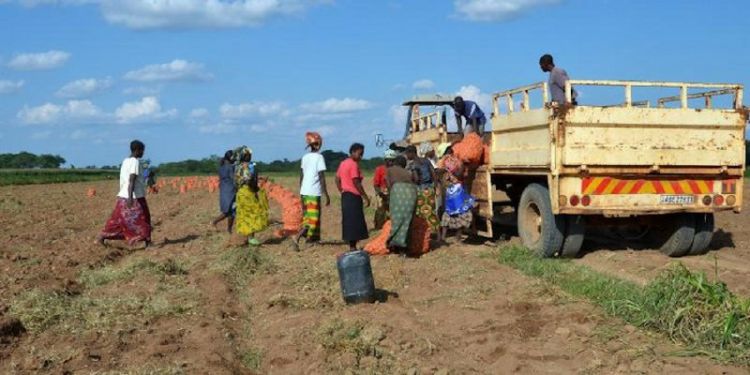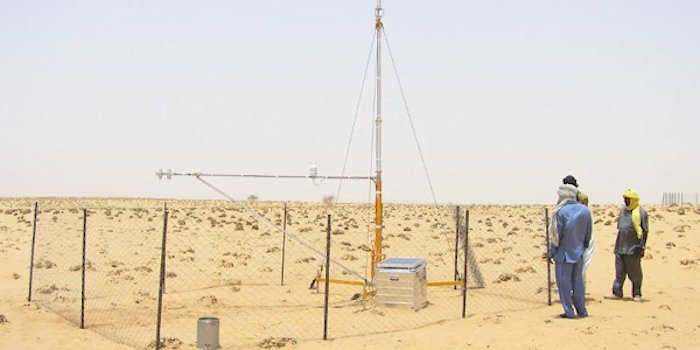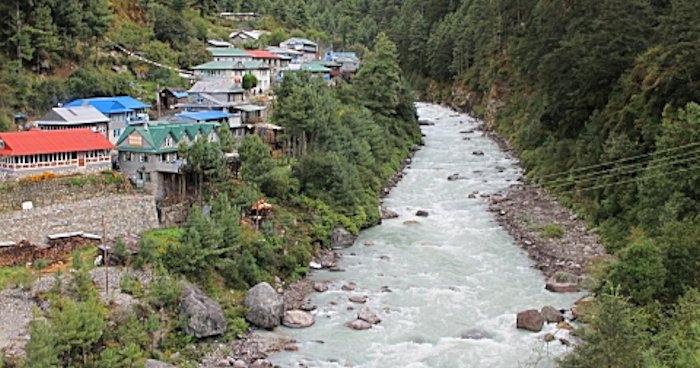Faculty of Environment is a key part of Leeds’ global funding success

The University of Leeds has been ranked in the top three UK universities for global funding success, according to new data from Research Fortnight.
Across the University, 53 different projects are supported by the Global Challenges Research Fund and the Newton Fund – including projects within the Faculty of Environment.
Both awards schemes are intended to fund research which will directly benefit lower and middle-income countries.
The projects conducted by the School of Earth and Environment and the School of Geography have so far focused on African and Asian countries, and have aimed to improve the quality of life for people in developing countries.
“Our researchers have spent many years building relationships with NGOs, governments and civil organisations in countries like Bangladesh, Nepal and in sub-Saharan Africa” said Professor Lisa Roberts, Deputy Vice Chancellor: Research and Innovation at the University of Leeds.
“We have learnt what these countries need to do to thrive, and have harnessed our exceptional breadth and commitment to working across traditional boundaries, to support them with solutions to some of the greatest global challenges facing humankind today.” She added.
Between 2014 and 2018, the University has secured more than £36 million from both GCRF and the Newton Fund.
Research Fortnight analysed 1,140 GCRF and Newton Fund grants awarded by the UK’s research councils to compile the figures.
With research strengths across a range of disciplines, Leeds is able to draw on novel combinations of expertise to apply for funding, and joins the University of Oxford and the London School of Hygiene and Tropical Medicine in the top three.
Here are some examples of the projects within the Faculty of Environment which are supported by awards from the Global Challenges Research Fund and the Newton Fund, demonstrating the breadth of the University’s research expertise:

Programme: GCRF African SWIFT – African Science for Weather Information and Forecasting Techniques
Lead academic: Professor Alan Blyth, School of Earth and Environment
Funding: £7.8 million | GCRF | Research Councils UK
Duration: Four years.
Countries: Senegal, Ghana, Nigeria, Kenya
Key partners: World Meteorological Organisation, The Met Office, NERC Centre for Ecology and Hydrology, University of Reading, African Centre of Meteorological Applications for Development and the weather services of Senegal, Ghana, Nigeria, Kenya, ICPAC, and universities in Dakar, Kumasi, Akure and Nairobi.
Objective: Developing greater weather forecasting precision, and creating more accurate longer-term forecasts could provide huge benefits to African businesses, small traders and society, strengthening their ability to respond to crises.
Weather-sensitive sectors including aviation, solar and hydro-power and agriculture could all grow as a result.
The four year programme has been developed to meet these aims.
Programme: GCRF-AFRICAP – Agricultural and Food-system Resilience: Increasing Capacity and Advising Policy
Lead academic: Professor Tim Benton, Dean of Strategic Research Initiatives
Funding: £7.9 million | GCRF | Research Councils UK
Countries: Tanzania, Zambia, Malawi and South Africa
Key partners: The Met Office, Chatham House, University of Aberdeen, African Food, Agriculture and Natural Resources Policy Analysis Network (FANRPAN).
Objective: Leading an international team, Professor Tim Benton, Dean of Strategic Research Initiatives, is focussed on creating evidence-based policy to develop sustainable, productive, agricultural systems.
His team’s research aims to support smallholding farmers in Africa, to meet food security and economic development needs.
The Faculty of Environment has provided significant support and leadership to the project.

Programme: HARVEST – ‘High-mountain Asia- building Resilience to water Variability using Experiments, Surveys and accounts of Tradition’
Lead academic: Dr Duncan Quincey, School of Geography
Funding: Award from GCRF
Countries: Nepal, Pakistan, India and Bhutan
Key partners: University of Bristol
Objective: The supply of water from Himalayan glaciers is vitally important to communities in Pakistan, Nepal, India and Bhutan. From hydroelectric power, to irrigation, sanitation and drinking water, the glaciers’ natural reservoirs support the lives and livelihoods of around 1.4 billion people.
The changing climate is altering the nature of this water supply, increasing the risks of floods and droughts. Such changes are particularly hard to predict – and plan for – in the complicated monsoon climate of the Himalayas.
An international team, led by the University of Leeds, is drawing together expertise in geomorphology, social science and environmental history to tackle this challenge in a programme funded by the Global Challenges Research Fund.




